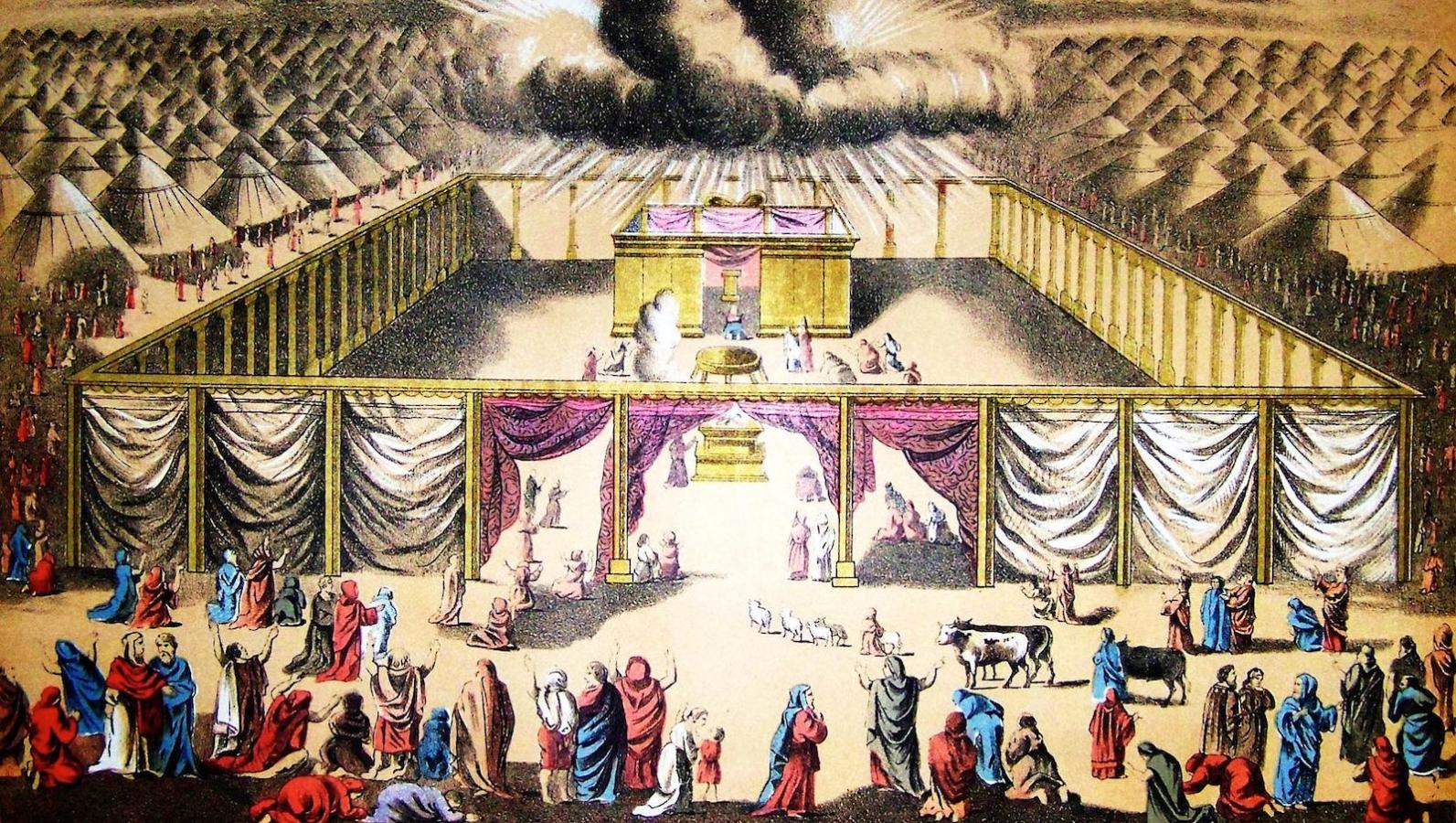Commentary on Parashat Vayakhel, Exodus 35:1-38:20; Numbers 19:1-22
The story of the Exodus from Egypt is not just a story of liberation, but it is also a story of maturity. It is the story of the maturing of the Israelites into religious adults. In the beginning of the story God is the one who constantly provided the religious context for the interactions between God and the people: it is God who initiated the relationship.
After the incident with the Golden Calf, God needed to provide a way for the Israelites to take the initiative, but in an appropriate way. The fact that the Israelites made an idol showed God that they wanted to initiate a relationship with God on their own terms. This was a big and positive step forward in their religious lives, but it was also a misstep. The Israelites were not to blame for the horrendous nature of their sin–they were simply acting based on the idolatrous environment that had surrounded them for 400 years.
Initiative through the Mishkan
On the heels of the Golden Calf incident, God gave the Israelites a vehicle through which to express their desire to relate to God. The vehicle was comprehensible to the Israelites, it was not an anathema to God, and most importantly it allowed the people to take the initiative. This vehicle was the Mishkan.
In Vayakhel we read about the construction of the Mishkan, the Tabernacle of God’s dwelling in the Israelite camp in the desert. The Mishkan was the place where the Israelites could relate to God on their own terms. Thus, the Mishkan was not absent of images and religious objects. The Ark of the Covenant, the Menorah, the Altar, these were all religious objects that the Israelites could understand as necessary for the worship of God, but were not representations of the Divine itself.
With your help, My Jewish Learning can provide endless opportunities for learning, connection and discovery.
Furthermore, God allowed every Israelite to participate in the construction of the Mishkan either through donations or through direct action, such as weaving the cloth, working the metal of the religious objects, or working the wood of the tent and fence. God initiated the relationship with the Israelites, but now God was providing the mechanism for the Israelites to continue that sacred relationship themselves. God was guiding them like a good parent or mentor on their way toward maturity.
Self-Sufficiency in the Developing World
When we think about helping people in the developing world we should model our actions on God. People in the developing world strive for self-sufficiency, not for endless handouts. As with the Israelites, the desire and will for independence exists. What is lacking are the resources or the technical knowledge to advance.
For the Israelites in the desert, the needs were religious and spiritual. For communities in the developing world, the needs can be material and economic or changes in government policies and priorities. These communities need loans to start farms and small businesses. They need technical expertise to learn how to implement drip irrigation to save water. When we provide aid to the developing world it has to be in a way that is culturally sensitive and allows those we are helping to take the initiative themselves.
Just as God allowed every Israelite to take part in the construction of the Mishkan, our aid to the developing world should involve projects that enable every member of the community to benefit. We give someone a loan not to buy bread for a day, but to buy seeds and plant a crop that will feed them on a continual basis. This is the highest level of tzedakah because it meets needs, it maintains dignity, and it fosters structural change.
Not-for-profit organizations like American Jewish World Service work with local grassroots organizations in the developing world that directly address the needs of their communities. Their goal is to provide funding and support to groups working on the ground with their own constituency to become self-sufficient.
Just as every individual has unique needs, so does every community. To donate our time and our money at the highest level is to aid others in their ability to take care of themselves. We must listen to what the other is asking and begin our work from there. We cannot be so arrogant as to provide what we think they need. Just as God met the Israelites’ need to relate to God on their own terms, so too we must meet the needs of the developing world on their own terms. This is a sacred endeavor.
Provided by American Jewish World Service, pursuing global justice through grassroots change.



